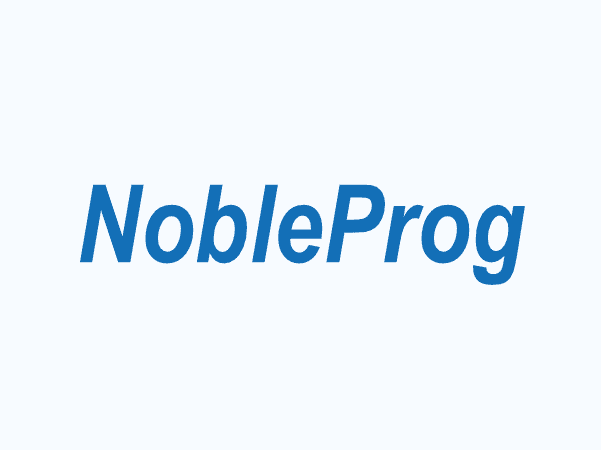ๆฅๆฌใใ163-1030ๆฑไบฌ้ฝๆฐๅฎฟๅบ่ฅฟๆฐๅฎฟ3-7-1ๆฐๅฎฟใใผใฏใฟใฏใผ30้, ๆฑไบฌ, ๆฅๆฌ, 160-0023
ๆฑไบฌ ๆฐๅฎฟใใผใฏใฟใฏใผ
ๆฐๅฎฟใใผใฏใฟใฏใผใปใณใฟใผใฎใใธใในใปใณใฟใผใฏใๆฐๅฎฟใใผใฏใฟใฏใผใฎ30้ใซใใใใพใใ
ๆฐๅฎฟใใผใฏใฟใฏใผใฏใๅคง่ฆๆจกใชๅๆฅญใจใชใขใจ้ฝๅบใๆใใๆฐๅฎฟ่ฅฟๅฃใฎใใธใใน่กใซไฝ็ฝฎใใใใฉใณใใใผใฏ็ใชๅญๅจใฎ52้ๅปบใฆใฎใใซใงใใ
่ฅฟๆฐๅฎฟใซใฏๅคๆฐใฎ่ถ
้ซๅฑคใใซใ็ซใกไธฆใใงใใพใใๆฐๅฎฟใใผใฏใฟใฏใผใฏใ่ฅฟๆฐๅฎฟใฎไธญใงใๅฑๆใฎ้ซใใ่ชใ่ถ
้ซๅฑคใใซใฎ้ฝๅบใใๅพๆญฉ3ๅใปใฉใฎๅ ดๆใซไฝ็ฝฎใใฆใใใ้ฝๅบใจๅใๅปบ็ฏๅฎถใซใใ่จญ่จใงใใใปใณใฟใผใฎไธ้ใซใฏๆๅใช5ใคๆใใใซใใใผใฏใใคใขใใๆฑไบฌใใๅ
ฅใฃใฆใใพใใ
ๆฐๅฎฟใซใฏ่ช็ฉบไผ็คพใใฏใใใ้ฃๅไผ็คพใๅคงๆใใฏใใญใธใผไผๆฅญใใณใณใใฅใผใฟใผใฒใผใ ไผ็คพใชใฉใๆฐๅคใใฎไผๆฅญใๆฌ็คพใๆงใใฆใใพใใใชใผใธใฃในๆฐๅฎฟใใผใฏใฟใฏใผใปใณใฟใผใฏๆๅคง60ๅใๅๅฎนใงใใไผ่ญฐๅฎคใๅใใฆใใพใใ
ใๆฐๅฎฟ้ง
ใ๏ผไธ็ใงๆใๅฉ็จๅฎขใฎๅคใ้ง
๏ผใใๆฐๅฎฟใใผใฏใฟใฏใผใพใง็กๆใฎใทใฃใใซใในใ้่กใใฆใใพใใๆ็ฐๅฝ้็ฉบๆธฏใธใฏใๆฐๅฎฟ้ง
ใใใใชใ ใธใณใในใใใณJRๆ็ฐใจใฏในใใฌในใๅฉ็จใใใใจใใงใใพใใใ่ปใใๅฉ็จใฎๅ ดๅใฏ้ฆ้ฝ้ซ้4ๅท็ทใฎใๆฐๅฎฟใๅบๅฃใใ็ด3ๅใงใใ
Tokyo, Shibuya Glass City
ๆธ่ฐทใฐใฉในใทใใฃ, ใ150-0036ๆฑไบฌ้ฝๆธ่ฐทๅบๅๅนณๅฐ็บ16-28ใฐใฉในใทใใค 6้, ๆฑไบฌ, ๆฅๆฌ, 150-0036
ใฐใฉในใทใใฃๆธ่ฐทใปใณใฟใผใฏใ246ใจๆงๅฑฑๆ้ใใฎไบคๅทฎ็น่ฟ่พบ็ฅๆณ็บใฎๆธ่ฐทใฌใผใใณใฟใฏใผใซ้ฃๆฅใใฆใใใใคใฏใฉในใใซใฎใใฐใฉในใทใใฃๆธ่ฐทใใซใใใพใใ
่กจ้ขใใฏใชใขใฌใฉในใซ่ฆใใใใใถใคใณใจใชใฃใฆใใใ้ ็ฎใใใใใฎ็พใใใใซใฎๅค่ฆณใๆใใใจใใงใใพใใ 2ๅฑคๅนใๆใใฎใจใณใใฉใณในใฏ้ๆพ็ใงใใใใใซๅ
ฑ็จ้จๅใใใจใใใใใพใใ ใใซ่ชไฝใฎ้ฒ้ณๆง่ฝใ้ซใใ้ฆ้ฝ้ซ้ใซ้ฃๆฅใใฆใใพใใใ้้ใชใชใใฃในใจใชใฃใฆใใพใใ
ๅจ่พบใฏใๆธ่ฐทใไปฃๅฎๅฑฑใๆฑ ๅฐปๅคงๆฉใธใฎใขใฏใปในใใใใITใใใถใคใณใใใผใฑใใฃใณใฐใชใฉใฎๆๅ
็ซฏใฎใฏใชใจใผใใฃใใชไผๆฅญใ้็ฉใใฆใใๅฐๅใงใใใใพใใ ไปฃๅฎๅฑฑใไธญ็ฎ้ปใธใๅพๆญฉๅๅ
ใใใณใใฃใผไผๆฅญใซใจใฃใฆใใจใฆใไบบๆฐใ้ซใใจใชใขใงใใ
่ฟ้ฃใซใฏใ็ฅๆณใ้็ๅไธใฎๅๆง็ใชใฌในใใฉใณใ้ฃฒ้ฃๅบใๅคๆฐ็นๅจใใ ๆฑๆฅใปใซใชใขใณใใใซใใจใฏใปใซๆฑๆฅใจๅฎฟๆณๆฝ่จญใๅ
ๅฎใใฆใใพใใๆธ่ฐทใใๅพๆญฉๅใฎๅๅนณๅฐใจใชใขใฏใ้ฝๅ
ใงๆใไบบๆฐใฎ้ซใใใธใในใจใชใขใฎไธใคใงใใ
ใชใผใธใฃในใฎใฌใณใฟใซใชใใฃในใใใธใในในใฟใผใใซๅฝน็ซใฆใฆใใ ใใใ
Subcategories (1)
Explore Our Courses
ISO 31000: Risk Management
14 ๆ้ISO 27032: Lead CyberSecurity Manager
14 ๆ้ISO 45001:2018 Requirements
14 ๆ้ISO 27001:2023 Requirements
14 ๆ้ISO 14001:2015 Requirements
14 ๆ้ISO 19011:2018 Requirements
14 ๆ้ISO 9001:2015 Requirements
7 ๆ้Introduction to ISO27001
7 ๆ้PECB ISO 27001:2022 Transition
14 ๆ้ISO 26262 Automotive Functional Safety
28 ๆ้QMS Auditor / Lead Auditor (ISO 9001)
21 ๆ้Last Updated:
Upcoming Courses
Other Countries
ใใใใฎใณใผในใฏไปใฎๅฝใงใใใใพใ>>ใณใณใตใซใใฃใณใฐ
ISO Standards ใณใณใตใซใใฃใณใฐ
ๆฑไบฌใฎISO Standardsใใฌใผใใณใฐใณใผใน, ๆฑไบฌใฎ้ฑๆซISO Standardsใณใผใน, ๆฑไบฌใฎๅคใฎISO Standardsใใฌใผใใณใฐ, ๆฑไบฌใฎใคใณในใใฉใฏใฟใผใซใใISO Standardss, ๆฑไบฌใฎISO Standardsใใฌใผใใผ, ๆฑไบฌใฎISO Standardsใฏใฉใน, ๆฑไบฌใฎ้ฑๆซISO Standardsใใฌใผใใณใฐ, ๆฑไบฌใฎISO Standardsๆๅฐ, ๆฑไบฌใฎISO Standardsใคใณในใใฉใฏใฟใผ, ๆฑไบฌใฎใชใณใตใคใใฎISO Standardssใใฌใผใใณใฐ, ๆฑไบฌใฎISO Standardsใใผใใญใฃใณใ, ๆฑไบฌใฎๅคใฎISO Standardsใณใผใน, ๆฑไบฌใฎใคใณในใใฉใฏใฟใผใซใใISO Standardss, ๆฑไบฌใฎISO Standards1ๅฏพ1ใฎใใฌใผใใณใฐ, ๆฑไบฌใฎISO Standardsใใฉใคใใผใใณใผใน



